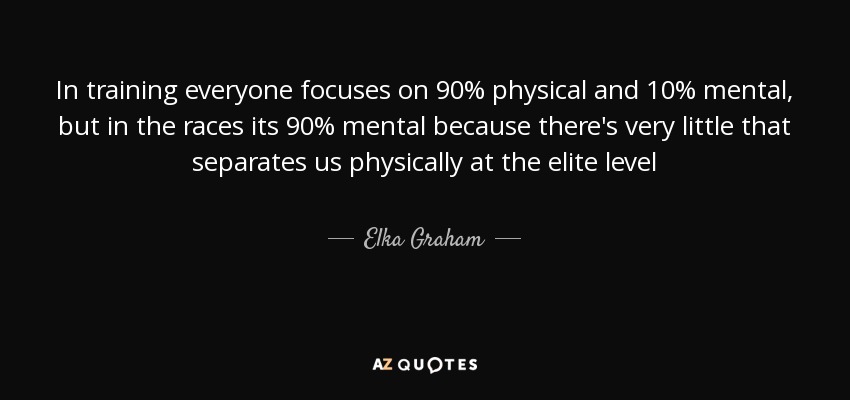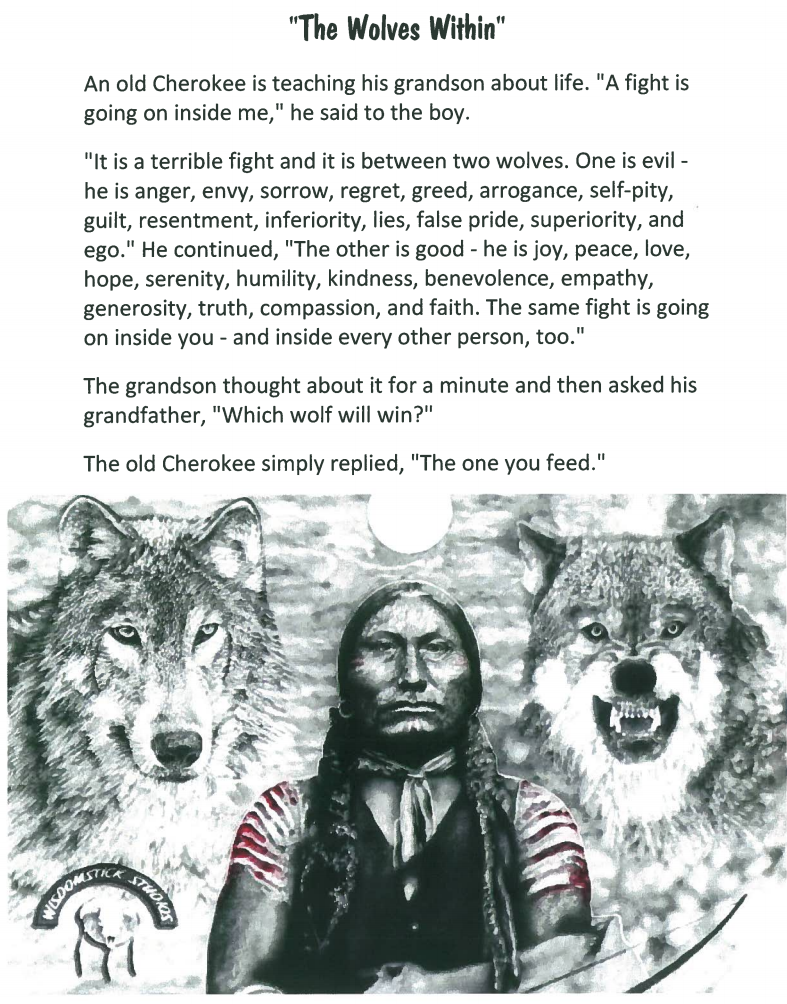The Ninety Percent
October 26, 2015
A New Science
Sports and Exercise Psychology was born in Germany during the 1920’s. It has since developed into a complex interdisciplinary science reaching far beyond just one blog post. One of the most popular applications of this science is at the elite level of sports competition. Athletes looking to gain a competitive edge or take their training to the next level turn to sports psych. methods ranging from quick tricks to mental strength sessions with qualified professionals. Here are some of the mental skills that have emerged from this growing field of study designed to develop the mind of a champion…

Goal Setting
- Specific
- But within a range:
- Rather than focus on one end-all-be-all goal, have a range within you wish to fall.
- Making successful performance life or death means dying an awful lot.
- But within a range:
- Measurable
- There must be a point where the goal is clearly achieved
- Objectivity means there is a definite point of success
- Positive
- Focus should be on high achievement
- Focus should not be on simply not failing
- Inspiring
- Short term and long term goals keep maintain motivation
- More ambitious goals are easier achieved with many small goals
- Aim High
- Displayed
- Think it, then Ink it
- Your mind should be drawn toward your goal throughout the day
- Placing reminders on the bathroom mirror, setting an alarm at a significant time, pictures and symbols are helpful reminders.
Visualization
Jim Afremow’s book, The Champion’s Mind, cites research that suggests the brain can be tricked into believing both reality and vividly imaged experiences.
Example: A nightmare where an individual is being chased elicits the same response as a real fleeing experience. When the dreamer wakes up he is safely at home, yet frightened, breathing fast, and heart pounding adrenaline throughout his body.
This is why visualization can be used to put an athlete in a competitive situation, prepare him or her for the situation, and yet never leave his or her own home. An athlete who practices visualizing a situation finally reaches that point in competition and can flow rather than strain. The scenario is familiar; along with the stress, anxiety, discomfort, and the solution. A study recently published in the Journal of Sport and Exercise Psychology found biological evidence of some individuals having better visualization abilities than others, but that through practice, an athlete can increase his or her visualization skill. Jim Afremow offers his “three key ingredients for successful imagery rehearsal”:
- Vividly see yourself performing successfully
First-person point of view, as opposed to third-person, allows the situation to become your own. Seeing yourself in a stressful situation is less effective than feeling yourself in a stressful situation.
- Deeply feel yourself performing masterfully
In your visualization, you can only perform as well as you imagine yourself performing. Visualizing that you have mastered the situation will help you to master the real thing.
- Thoroughly enjoy seeing and feeling yourself winning
After addressing that the scenario is stressful, one coping mechanism is to make the stress as enjoyable as possible. The more positive thoughts going through your head, the better you will be able to perform.
+Self-Talk

The “Good Wolf” for our purpose is also the animal of flowing, smooth, effortless performance. Practicing positive self-talk can sound silly at first. In the beginning, you may feel as though you are lying to yourself, that this is another way to “fake it ’til you make it.” However, as with visualization, your body can be tricked into a better state of mind. With practice positive self-talk becomes a positive attitude.
“Do Say Do!”
This was a phrase coined by cross country Coach Kyle Burton. He suggested that athletes should not allow negative thoughts to enter their minds. This does not mean avoiding adversity entirely, but keeping a positive attitude when things do not go your way. Rather than tell yourself, “Don’t fall off this pack.” A runner should tell himself, “Stay in contact with this group.” Practicing telling yourself positive affirmations forces the bad thoughts out and the good thoughts in. The good wolf thrives in competition.
Confidence
“When I race, my mind is full of doubts-whol will finish second, who will finish third?”-Noureddine Morceli
Confidence is mistaken for a multitude of other attitudes: cockiness, no fear of failure, pride, arrogance. A true champion builds genuine confidence. Clarity breeds confidence; not the other way around. This is where we begin to see false senses of confidence. Building clarity means you must be very familiar with your flaws and failures, and you must be self-actualized with your successes. This means you should not fear failure. Failure is a very real measure of where you are at, and what you have to build upon.
Body Language
Below is a TED Talk video blending together many of the mental skills discussed above. This particular talk emphasizes the power of positive body language over mentality. Follow along with some of the tips and tricks in the video.
Related Readings:
- Biological Evidence of Imagery Abilities
- Patterns of Change in Psychological Variables Leading up to Competition
- The Champion’s Mind: How Great Athletes Think, Train, and Thrive -Jim Afremow
- The Energy Bus -Jon Gordon
- Running Within -Jerry Lynch
Helpful Resources:
- Journal of Sports and Exercise Psychology
- http://journals.humankinetics.com.ezproxy.butler.edu/jsep
- Coach Ken Wertz Mental Magic
- Twitter: @MentalMagicII
- St. Vincent’s Sports Psychology
Works Cited
Boat, R., & Taylor, I. M. (2015). Patterns of Change in Psychological Variables Leading up to Competition in Superior Versus Inferior Performers. Journal of Sports & Exercise Psychology, 244-256.
Cuddy, A. (2012, June). Your body language shapes who you are. Retrieved from TED.com: https://www.ted.com/talks/amy_cuddy_your_body_language_shapes_who_you_are
Seiler, B. D., Monsma, E. V., & Newman-Norlund, R. D. (2015). Biological Evidence of Imagery Ablities: Intraindividual Differences. Journal of Sport & Exercise Psycology, 421-435.
The Wolf Within.
Wikipedia. (2015, October 5). Sports Psychology. Retrieved from Wikipedia.com: https://en.wikipedia.org/wiki/Sport_psychology
Leave a Reply